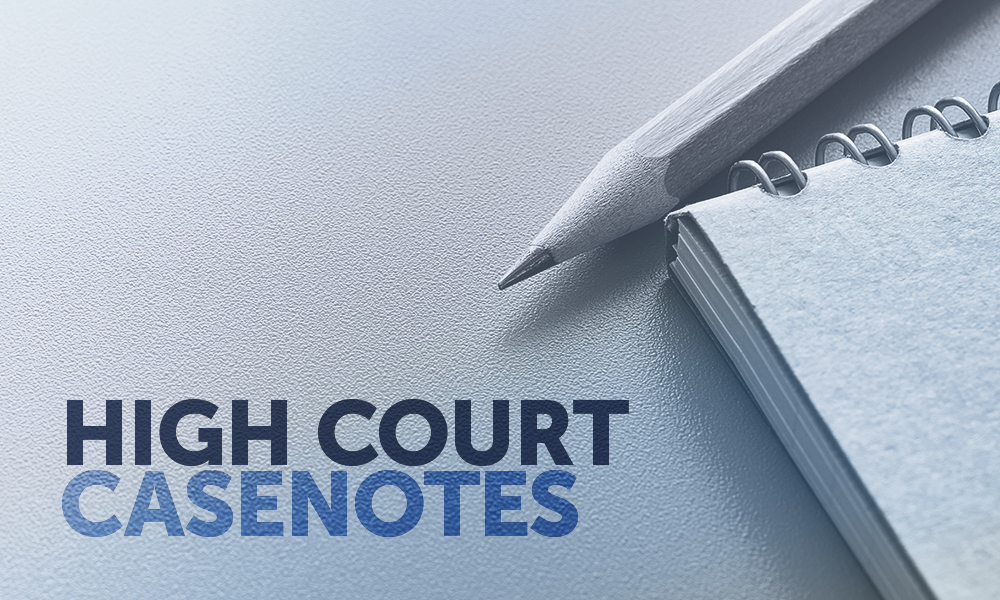In Barnett v Secretary, Department of Communities and Justice [2023] HCA 7 (15 March 2023), the High Court unanimously revoked the grant of special leave with some stern words for litigants.
The appellant (Barnett) is the mother of a child born in the Republic of Ireland. In August 2020 she relocated from Ireland to Australia with the child, without the consent of the child’s father.
At the father’s request, the respondent (State of New South Wales) applied to the Family Court of Australia (as it was then known) under the Family Law (Child Abduction Convention) Regulations 1986 (Cth) (regulations), for orders for the return of the child to Ireland.
The regulations give effect to Australia’s obligations under the Convention on the Civil Aspects of International Child Abduction (1980) (the convention). The convention provides a framework for the return of children who have been wrongfully removed from their country of residence. Both Australia and Ireland are signatories to the convention.
At first instance, the primary judge was satisfied that the child had been wrongfully removed in accordance with the relevant provisions of the regulations, and made orders for the return of the child to Ireland.
In reaching this decision, the primary judge relied on a declaration made by the District Court of Dublin Metropolitan District (Irish Court) in April 2021 – that the father was the guardian of the child within the meaning of s6 of the Guardianship of Infants Act 1964 (Ir) (the declaration), although the Irish Court’s reasons for making the declaration were not admitted in evidence.
The mother appealed to the Full Court of the Federal Circuit and Family Court of Australia (Division 1). The mother argued, on appeal, that the father had not been proved to have rights of custody in respect of the child. The Full Court dismissed the mother’s appeal.
The Full Court did not have a copy of the Irish Court’s reasons, but reasoned that the declaration must have been based on the cohabitation of the parents in Ireland, prior to the mother’s return to Australia with the child. As such, the Full Court concluded that the primary judge was right to find that the child had been wrongfully removed.
The Full Court also considered that the mother, having been a party in the proceeding before the Irish Court, was estopped from asserting that the father did not have rights of custody.
The mother successfully applied for special leave to appeal to the High Court. The mother’s sole ground of appeal was that the Full Court erred in holding that the declaration gave rise to issue estoppel. The mother argued, in her application for special leave, that it did not follow from the bare terms of the declaration – either as a matter of fact or by operation of Irish law – that the father had rights of custody in August 2020.
Before the appeal was heard, the respondent applied for a revocation of the grant of special leave. At the hearing of the respondent’s application, a transcript of the Irish Court’s reasons for making the declaration was admitted into evidence.
The transcript disclosed that the Irish Court found the father’s guardianship of the child commenced from May 2020. The High Court (Kiefel CJ, Gageler, Gordon, Gleeson and Jagot JJ) unanimously found, in a joint judgment, at [10] and [12], that the “foundation” for the grant of special leave had been removed.
Further, that it would otherwise be contrary to the interests of the administration of justice to permit the mother’s appeal to proceed when the Irish Court’s reasons validated the decisions of the courts below, based on inferences from the declaration.
But the High Court did not stop there. Under the heading ‘Some further matters’, the High Court observed that this was not the first time the court had been left without critical material in matters arising under the regulations.
The High Court, at [15], chided the parties that “the speedy disposition of applications under the convention is not to be achieved ‘upon a patently imperfect record’ or at the expense of other incidents of the due administration of justice, including the identification of the issues truly open to dispute between the parties through the making of proper and reasonable inquiries and the gathering of evidence”.
The High Court, at [18], also stated that “good practice” called for a consideration by the respondent of the joinder of the requesting parent, as a proper party to an application under the regulations.
Dr Michelle Sharpe is a Victorian barrister practising in general commercial, real property, disciplinary and regulatory law, 03 9225 8722, email msharpe@vicbar.com.au. The full version of these judgments can be found at austlii.edu.au.














Share this article